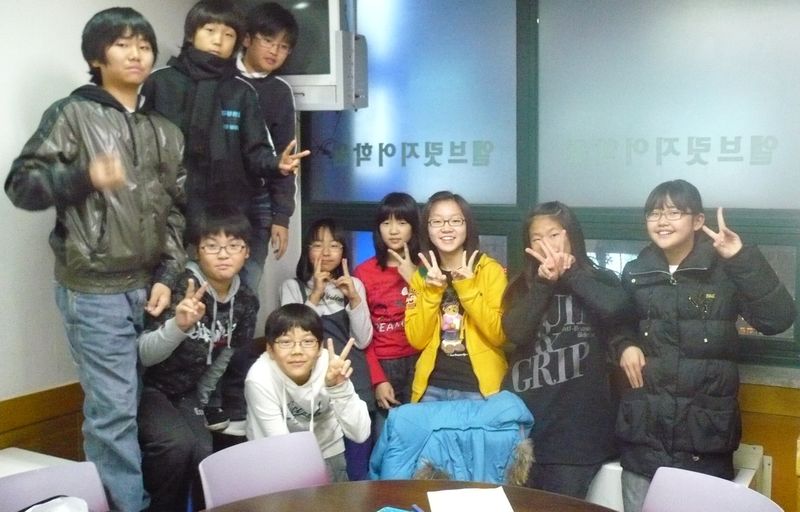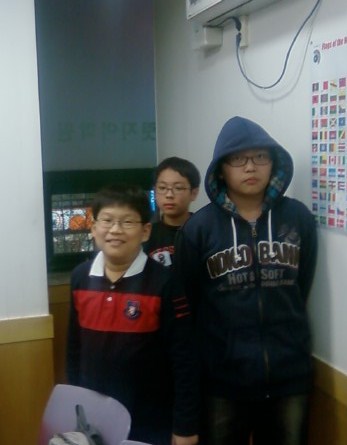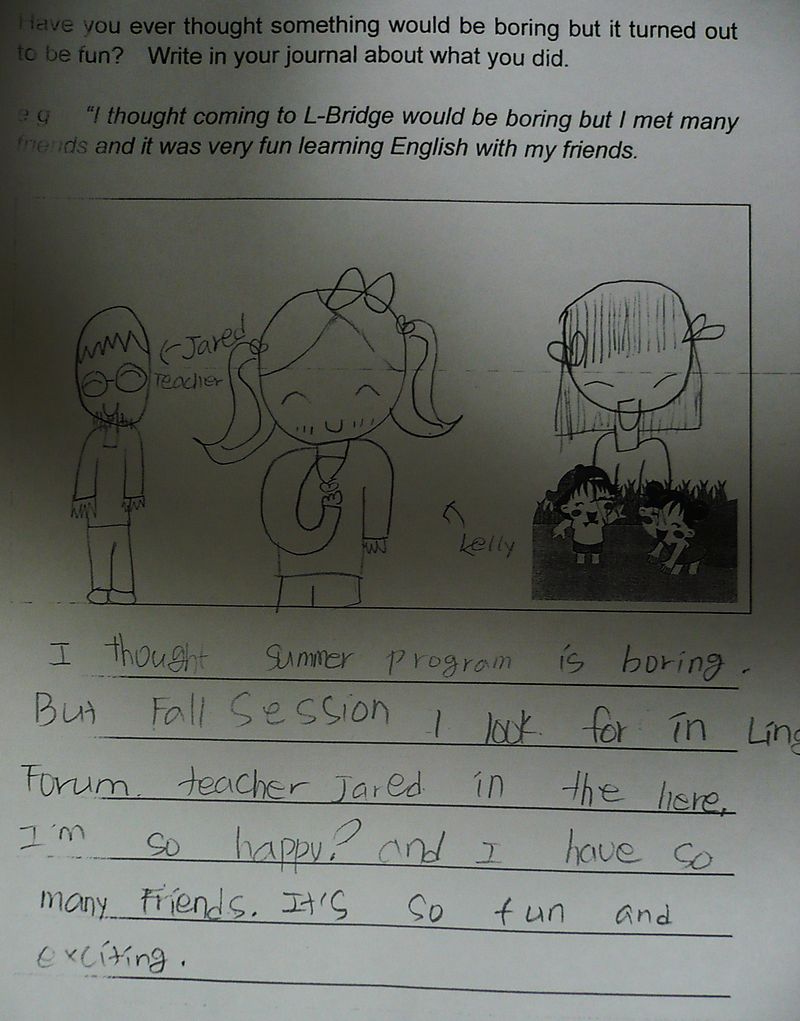I wonder what self-destructive impulse it was that made me renew my contract with LBridge. I'm feeling so very frustrated and unhappy with things at the moment.
But, because of how recently I made the decision to renew, and because I made that decision despite the many serious misgivings I had (and which I expressed here in this blog to some extent), well… now I have only myself to blame. Basically, I'm hating myself for making what is beginning to feel like a very stupid decision.
Hopefully I'll get over it.
Blogs being what they are… and this blog being what it is, specifically… I think what I will do is rant my ravings–vent my anger, document my rage.
My very first day at the company I worked for in Long Beach–circa May, 2005–I walked in and the first thing I had to do was assemble my desk. It was in pieces, like a new piece of discount office furniture. I made a lighthearted joke of it, and it's not like I was offended, exactly. But it set off all kinds of alarm bells in my head, most of which were later confirmed, about the company I was starting to work for.
This week is the first day since then that I have felt the same degree of bemused disgust with a (relatively) new employer as I felt that day.
But it's not just one thing. It never is. These sorts of things are cumulative, and they build and then the most idiotic things become huge burdens, and the most minor annoyances begin to feel like grounds for drastic action. I will try to list the things that are making me so angry, in the order in which I became aware of them.
1. Chaos. When I got back from Australia, that first Monday back was a chaotic mess. Lack of information, last-minute requests and changes, unclear instructions. I suppose that's not that different from my last academy, but it makes a huge difference when it's 700 students rather than 150, and 20-something staff rather than 6. One needs to scale out efforts at communication when you get groups of workers this large. But instead there were these brief announcements, not even always in English, about what to do, copies to be made, handouts to be prepared, etc. I made hundreds of copies of syllabi that I didn't need, for example, because no one clarified that an earlier announcement that teachers were required to prepare syllabi for their courses was only intended to apply to the first block of classes.
2. Load. Once I had time to absorb the facts of my new schedule, I came to realize that several classes had been added to my teaching load relative to what I'd experienced during the 5 weeks of summer term that I'd spent here at ElBeuRitJi. Further, when I studied the syllabi for the courses I'm now teaching, I noticed that Sarah had added a fair number of additional homework assignments per week, on average, when compared to the same given course level in the summer session. I understood that this was in response to parental requests for "more homework," but that doesn't alter the fact that "more homework" for students equals "more time spent grading papers" for teachers–especially when the topic is advanced writing. Overall, I would estimate (very roughly) that my total load (teaching plus prep time plus paper correction time) is at least 25% heavier than I'd been led to expect, based on what I'd seen in August.
3. Rudeness, and Aforementioned the Communication Taboo. This is probably the most seemingly irrelevant of my complaints, certainly it's the most naive, but it's the one that has left the longest-lasting bitter taste in my mouth. Last Thursday or Friday, I was going to "punch out" on the little time-clock thing. It's nothing more than a RFID card and a reader mounted near the doorway of the staff room. When I was given the card, I received no orientation on its proper "use," but to all appearances it seemed extraordinarily self-explanatory–wave the card in front of the reader, and the reader beeps and then says something profoundly polite in cute, synthesized Korean, and that's it. But suddenly, watching a coworker, I realized that there was a sequence of buttons that were supposed to be pushed before "punching in," and imagined there would also be a different sequence to be pushed before "punching out." So I was left with the sinking feeling that my "ins and outs" hadn't been recorded correctly by the system. So I commented on it. "Oh yes," someone said, "you have to do this when you come in, and this other when you go out." Thus enlightened, I turned to our manager and said, "Gee, no one told me this." "You didn't ask," was his immediate, flippant response. Which comes back to what I meant by the "communication taboo" I mentioned before. Unlike in, say, the U.S., in Korea, it's the subordinate's duty to seek out all relevant information pertaining to his responsibilities and job duties. If an employer had said something like what our manager said in a U.S. workplace, about something as sensitive (and as pertinent to issues of compensation!) as the proper operation of the time-clock, well, I'd hazard a guess that that employer would quickly have a lawsuit on his hands. But even setting aside issues of legality (actually, I'm certain there was no illegality nor even irregularity about any of it, at least under Korean law), it nevertheless struck me as a profoundly rude thing for a boss to say to an employee–especially a new one. Rationally, I understand this is a problem related to cultural perspective, not genuine rudeness. But still, I can't seem to get over it.
4. Hours. So, last week I put in about 50 hours. And this week, I'm going to hit something over 60. Grading papers. And the thing is, the way the contract is written, I doubt this entitles me to any kind of overtime pay, since overtime is calculated based on in-class hours, not "prep hours." If I dared to complain about it, I'm sure the pat reply would be, "you're spending too much time grading papers. Do it faster! Do it more effeciently." In other words, no acknowledgement that a competent performance, given the load, requires more work than is being assumed.
5. Nickled and Dimed. And then tonight, I got my pay stub. And I was shocked. First of all, ElBeuRitJi had exploited the fact that their "pay calendar" worked "differently" than RingGuAPoReom's to essentially avoid paying me for what were supposedly "paid" vacation days at the beginning of August. At least, they would have been described as "paid" at RingGuAPoReom. But ElBeuRitJi calculates things "differently." Also, I was a bit surprised that my week off to Australia wasn't paid. Now, I never got in writing that it was going to be paid. But I distinctly recall the conversation with my manager about it. I'd actually volunteered that it be unpaid, because I wanted it, regardless. But when I volunteered that it be unpaid, what the manager said was "oh, don't worry about it." I interpreted that to mean that, in fact, they intended to pay it. Again, it wouldn't have mattered to me if they didn't want to. But in fact, they didn't tell me that they weren't going to pay me. Shouldn't they have? No… they simply assumed it was "obvious" that I wouldn't be paid for that. If that's so, why did he say, "oh, don't worry about it"? Doesn't that imply that they would pay? Well… it's comes back to that issue I rasied before, mentioning the visa renewal in August, really. Or the blood test. The fact that I had to pay both those fees, whereas at my last academy jobs, I know for a fact that the employer paid those kinds of things, from personal experience. It boils down to: they nickle and dime you, here at ElBeuRitJi, effectively reducing the contract salary, and manipulating the fine print of the pay system to save a few bucks. It's not a good way to make workers feel appreciated, even if you're a worker such as me, who is constantly reminding himself: "if I was in this for the money, I wouldn't be."
I love my time with the kids. They're awesome–bright, smart, interesting, funny. Can we just get rid of the management? And isn't this the inevitable refrain at every job I've ever held? So, is it just me? Do I have "issues" with authority?














